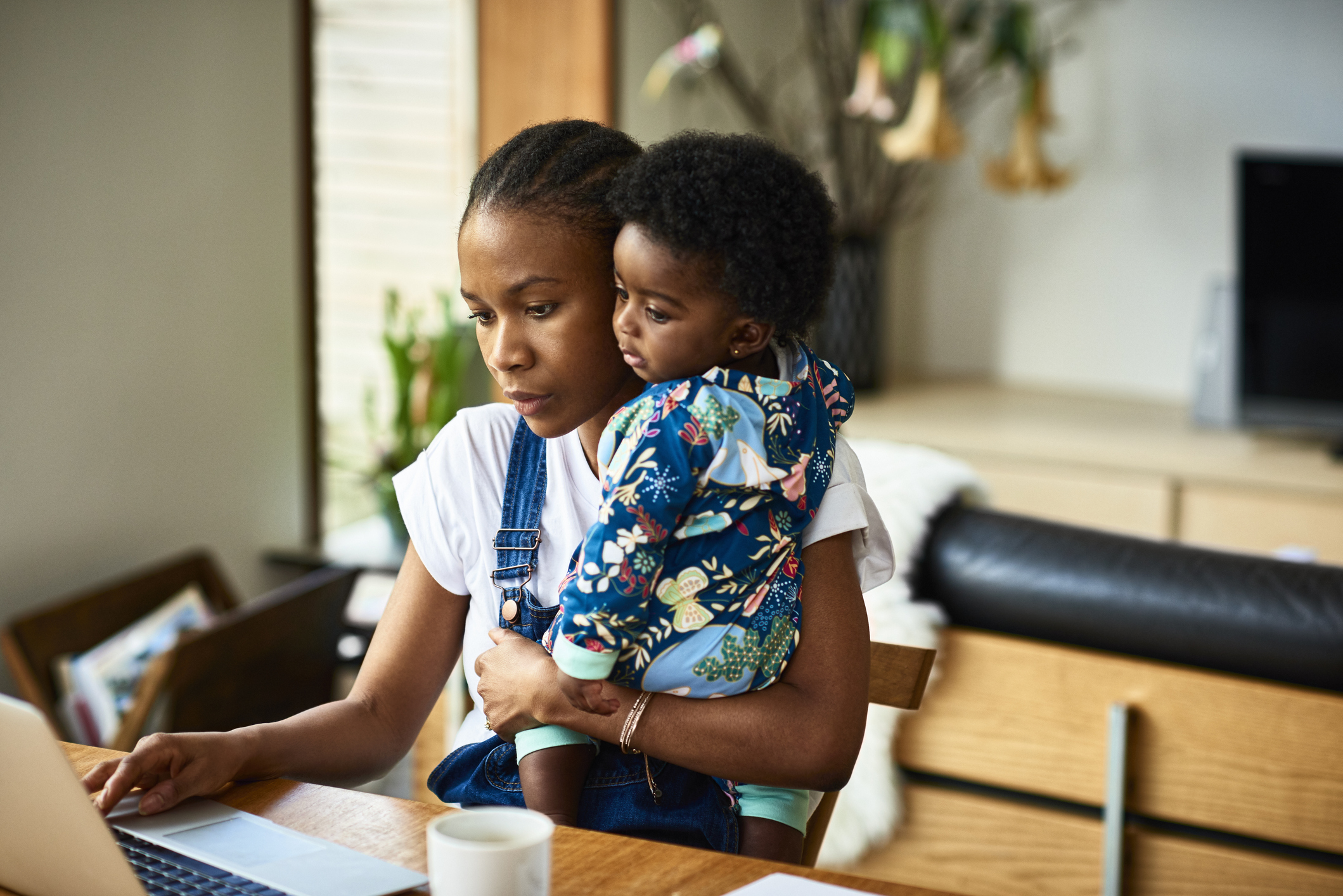'I need to split myself in two to be a working mum' New report lays bare the 'disproportionate impact' childcare has on a mother's career
New research has highlighted the struggle working mothers have trying to balance their work and family life

A new report has laid bare the challenges faced by working mothers as they try to balance their family priorities and work commitments.
Many new mothers will have weighed up whether it's financially worth returning to work after having a baby, and whether it's the right choice for their family given the high average childcare costs many parents face. But as anyone who has had a child will appreciate, the family and work life balance is not easy to navigate, and the motherhood penalty can impact working mothers well into retirement.
But a new report from the Fawcett Society , a charity that campaigns for gender equality, and Totaljobs demonstrates the disproportionate impact childcare responsibilities have on women and their careers.
Of the 3,000 working parents with at least one child aged four or under, surveyed for the Parenthood: Uplifting New Mothers at Work report, one in four working mothers with one child, ultimately said that they would love another child but can't afford it.
The report also highlights that 45% feel the mum guilt when trying to juggle work and childcare, with 39% of mothers struggling to balance work and childcare commitments when they return to work, compared to only 27% of men.
Mothers feel lack of support and flexibility when returning to work
Despite 76% of women's career aspirations remaining the same after becoming a parent, and 44% of mothers saying they feel more ambitious after having a baby, 34% worry that childcare commitments will hinder them from meeting their career aspirations.
This is made worse, according to 84% of working mothers, due to challenges, such as a lack of flexibility and support from their employers on their return to work. According to the report, 30% of mothers received no support when returning to work, and this percentage rises to 38% for those who took more than 13 weeks of maternity leave or earned less than £20,000 per year. Around one in 10 mothers had to quit jobs due to childcare pressures.
Parenting advice, hot topics, best buys and family finance tips delivered straight to your inbox.
Mum of two, Simone, says: "I need to split myself in two to be a working mum, and that's just impossible. My employer was really supportive when I went back to work and I know that's not the case for everyone. But whenever I need to leave work early or take a day off last minute because one of the boys is poorly, I feel so guilty and worry that my manager will think less of me."

However, when it comes to discussing their needs with their employer, more than a quarter (27%) of mothers feel uncomfortable asking for the support they need, with 40% of those worrying that it will make them look uncommitted to their work. For those mothers looking for a new job after maternity leave, again, almost a quarter (23%) avoid mentioning their childcare responsibilities, fearing that they will look less committed or capable in the eyes of their prospective employer.
When it comes to flexible working, only 33% of mothers feel that they have access to the flexibility they need, and almost a third (31%) feel stuck in their current job because of the flexibility provides, even though they could likely earn more money and advance their career further if they worked elsewhere.
Speaking of the findings, Jemima Olchawski, Chief Executive of the Fawcett Society, says: "The few years that a mother spends looking after children is a tiny proportion of her working life. Too often, outdated prejudices and assumptions mean that women face unnecessary and harmful attitudes that hold them back. This results in many women being stuck in roles that are below their capabilities.
"The data clearly shows that flexible working is the most important demand from working parents. Only when we fully embrace company-wide cultures of flexible working will we see mothers have the best chance of being fully integrated into the workforce."
Know your rights under the Flexible Working Bill
All employees have the legal right to request flexible working, as long as they have worked for the same employer for at least 26 weeks. But 2023 saw new changes introduced to the Flexible Working Bill to help benefit even more workers, especially working mums
These include:
- Employers are required to consult with the employee before rejecting a request for flexible working
- Employees can make two statutory requests in any 12-month period (the limit used to be one request)
- Decisions must be made within two months rather than three
- The previous requirement on the employee to explain what effect, if any, the flexible working option requested would have on the employer and how that effect might be dealt with has been removed
Originally, the government stated that the new bill would also give workers the right to request flexible working from the first day of a new job – but this hasn’t been included in the legislation just yet.
Flexible working examples
There's isn't a one size fits all approach to flexible working, so it could look different from one parent to the next, Some examples include:
- Working from home
- Working part-time
- Job sharing
- Working compressed hours, where you might still work full time hours, but over fewer days
- Flexi-time/staggered hours.
If you are trying to balance work and family life, you might also want to know how to explain the mental load to your partner. For new and expectant mums, it can also be useful to understand what matrescence is so you can better articulate the support you need as a new parent.
Sarah is GoodtoKnow’s Money Editor. After Sarah graduated from University of Wales, Aberystwyth, with a degree in English and Creative Writing, she entered the world of publishing in 2007, working as a writer and digital editor on a range of titles including Real Homes, Homebuilding & Renovating, The Money Edit and more. When not writing or editing, Sarah can be found hanging out with her rockstar dog, getting opinionated about a movie or learning British Sign Language.